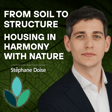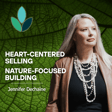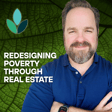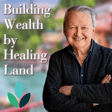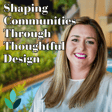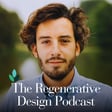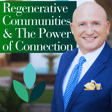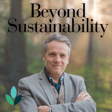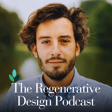
Ep. 13: Ernesto Furtado - Building a Sustainable Global Real Estate Empire
“The goal is to buy low and sell high, not buy high and pray to God it goes higher.”
Have you ever wondered how a home or community can truly live in harmony with nature, fostering sustainability while offering a fresh way of life?
Exploring the intricacies of building homes that embrace the land’s natural resources while minimizing environmental impact, we touch on groundbreaking approaches like prefabricated homes, energy-efficient designs, and how these choices lead to healthier living environments. The dream of being part of a community where your home not only shelters you but sustains you, both financially and ecologically
Ernesto Furtado is a seasoned real estate expert with over 40 years of experience, managing properties across 24 countries. He’s the CEO of Vision Real Estate Management Services and a group CEO at All Things Real Estate Global Group. Ernesto has managed to grow his network to nearly 90,000 realtors across 24 countries, and he continues to provide exclusive advisory services to real estate investors worldwide. Ernesto is now leading a groundbreaking project on the Island Sao Miguel, part of the autonomous region of Portugal—a regenerative community designed for adults seeking a more conscious, sustainable lifestyle. The development, Quinta Vida Nova, is centred around the principles of sustainability, incorporating renewable energy sources like solar and wind power, eco-friendly construction methods, and communal gardens that provide fresh produce for the residents. Ernesto's vision is to create not just homes, but a way of living that fosters community, health, and respect for the natural environment.
Websites:
https://quintavidanova.com/newhome/
All Things Real Estate Global Group: https://atregg.com/
Explore these valuable resources to further your journey in regenerative design:
Discover more about Paulownia trees and their sustainable potential at https://www.paulownia-la.com/.
Dive into the Twelve Laws of Nature and unlock the secrets of harmonizing with our planet at https://www.12lawsofnature.com/.
Fulfill your garden aspirations with expert guidance from the Garden of Your Dreams masterclass at https://www.gardenofyourdreams.com/.
Ready to take actionable steps towards your dream garden? Book a complimentary 30-minute training session with Matthieu for immediate results: https://calendly.com/garden-of-your-dreams.
